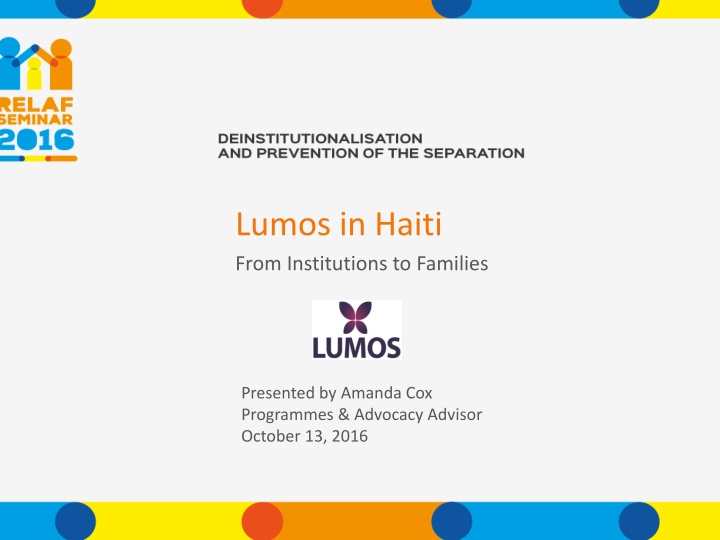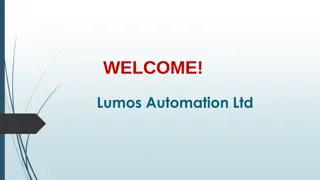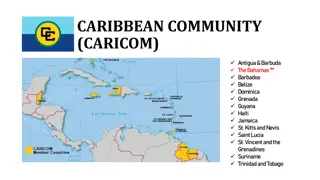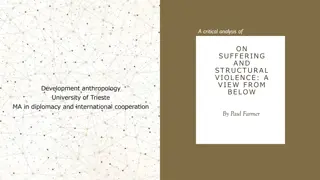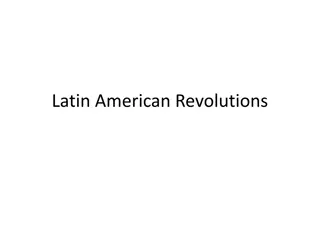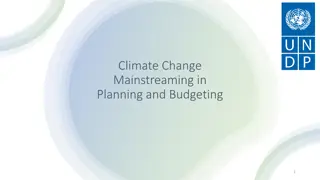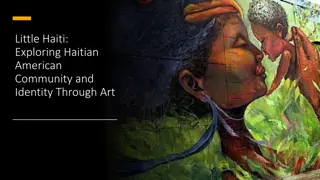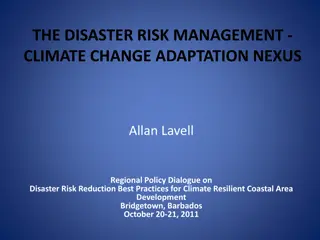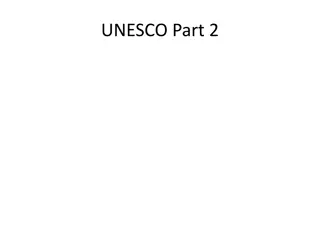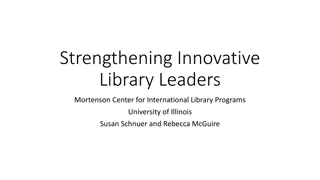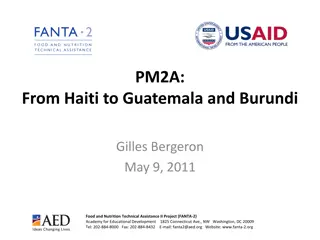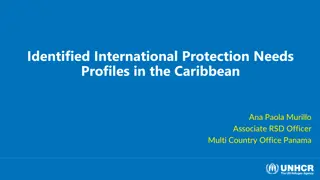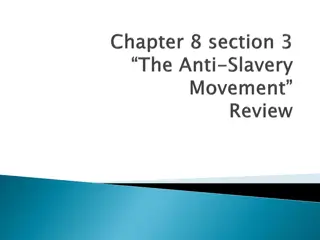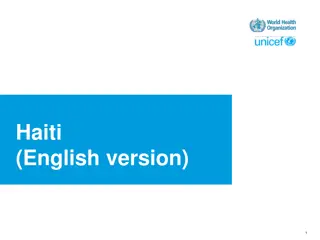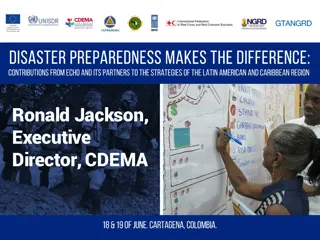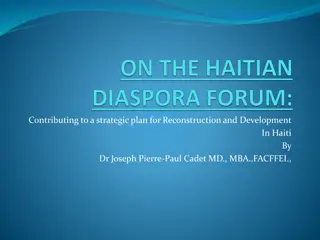Lumos in Haiti
Lumos is actively working in Haiti to transition children from institutions to families, addressing the complexities of child welfare, family separation due to poverty, and the pitfalls of orphanages. Through various strategies, Lumos aims to advocate for family preservation, reunification, and community support services over institutional care, highlighting the importance of reform in child care systems.
Download Presentation

Please find below an Image/Link to download the presentation.
The content on the website is provided AS IS for your information and personal use only. It may not be sold, licensed, or shared on other websites without obtaining consent from the author.If you encounter any issues during the download, it is possible that the publisher has removed the file from their server.
You are allowed to download the files provided on this website for personal or commercial use, subject to the condition that they are used lawfully. All files are the property of their respective owners.
The content on the website is provided AS IS for your information and personal use only. It may not be sold, licensed, or shared on other websites without obtaining consent from the author.
E N D
Presentation Transcript
Lumos in Haiti From Institutions to Families Presented by Amanda Cox Programmes & Advocacy Advisor October 13, 2016
Situation in Haiti There are approximately 32,000 children living in orphanages or institutions in Haiti. More than 80%are not orphans. According to the available information, the majority are separated from their families and placed in institutions because of extreme poverty and a lack of access to basic health, education and social services. The orphanages in Haiti are predominantly privately run, and funding is, for the most part, provided by foreign donors often small foundations, NGOs, or individuals. There exist strong links between orphanages and the trafficking of children. The situation is compounded by a strong interest in orphanage voluntourism by volunteers and missions teams from the U.S.
Actions Taken Lumos began work in Haiti in early 2015 at the invitation of and in partnership with the Haitian government Both short and long-term plans were created Short term plan to close 140 of the worst institutions in collective impact approach Long-term plan to create a tipping point in child care reform, development of systems and services that prevent the separation of children from their families, develop an array of alternative care options and decrease reliance on institutions Lumos has been: Building capacity of government and NGOs (High level seminar, study visits, trainings) Responding to emergencies and working directly in institutions Documenting cases of child abuse and trafficking Advocating for government, multilateral and faith-based donors to prioritize family preservation, reunification and community support services over the creation of more orphanages
Results in Haiti To Date Reassessment of 760 institutions is underway process of assessing is complicated by many factors Intervention has taken place in several institutions 39 of 40 children safely reunified with families after being trafficked to an institution MOU has been signed with anti trafficking commission and study visit with EU Parliament advocacy just finished Lumos and IBESR will both be represented on Advisory Committee for large project funded by USAID looking at child protection throughout 3 areas of Haiti Launch of publication: Orphanage Entrepreneurs: The Trafficking of Haiti s Children Manual and Toolkit for faith-based donors funded via Faith to Action Initiative (Launch in November) Plans for more trainings and support for conferences in development Interest growing in collective impact plan and piloting of DI in specific communities (ie. CRS)
Challenges in Haiti Lumos challenges are challenges faced in most contexts: Without a substantial system of alternative care, nowhere to place children in an emergency Lack of prosecutions for corrupt orphanage directors Dangers inherent in interfering with the livelihoods of those who profit from orphanages Most orphanages are privately funded by faith-based donors (special advocacy needed) Sufficient resources lacking (financial and human) to manage such complex change Sufficient social work and case management skill needed to work with children and families A shift in societal attitudes is needed, families need to feel empowered to care for children Lack of free education for all, lack of access to affordable health care and extreme poverty
Next Steps in Haiti Completion of the reassessment, evaluation (with government) of information gathered and presentation of results in public forum/conference Strategic review of current system (strengths and weaknesses) Urgent development of structure to manage admissions and discharges/gatekeeping for current institutions Formalize collective impact commitment to close 140 +/- worst institutions Legislative reform, particularly prosecution of traffickers Training of all providers and personnel working with children (police, social work workforce, etc) Ongoing advocacy to influence funds from EU and US towards care reform in Haiti and beyond Selection of 2nd demonstration country programme in LAC region Collaboration on training and advocacy in LAC region
Amanda Cox Programmes & Advocacy Advisor Lumos www.wearelumos.org
